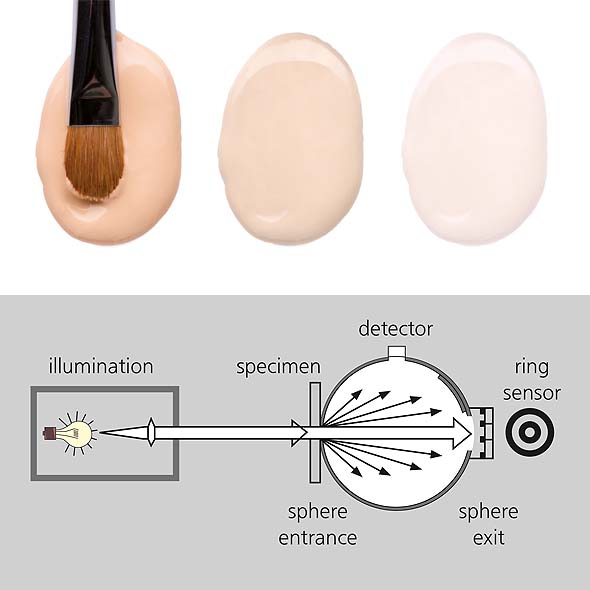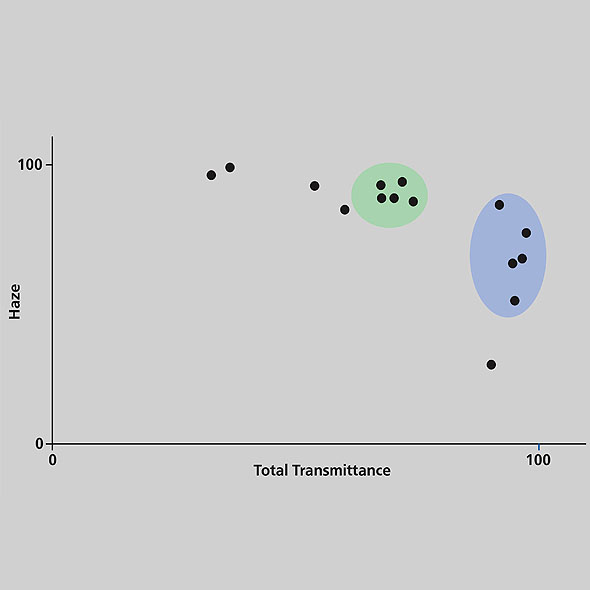Transparency
haze-gard i
Product Info
In the cosmetics industry the soft focus effect is used in anti-aging creams and tinted lotions. The idea is to diminish skin imperfections such as fine lines and wrinkles and to create a “flawless”, but at the same time “natural” look. Therefore, the lotion should have a high percentage of both Total Transmittance and Transmission Haze. The BYK-Gardner haze-gard i helps to achieve the goal of developing a highly efficient soft focus product.
There are many different factors like chemical composition, size, shape and porosity of a particle, which are influencing its ability to exhibit a soft focus effect. The more light is scattered, the higher will be the diffused transmittance component. And then the soft focus effect will be most effective. In addition, a high total transmittance will ensure that a more natural look is obtained. An easy and objective method for fast screening of microspheres for this effect is using a haze meter to measure the total transmittance and haze (diffused transmittance component) of particles dispersed in a film and applied on e.g. a glass plate or a transparent film.
